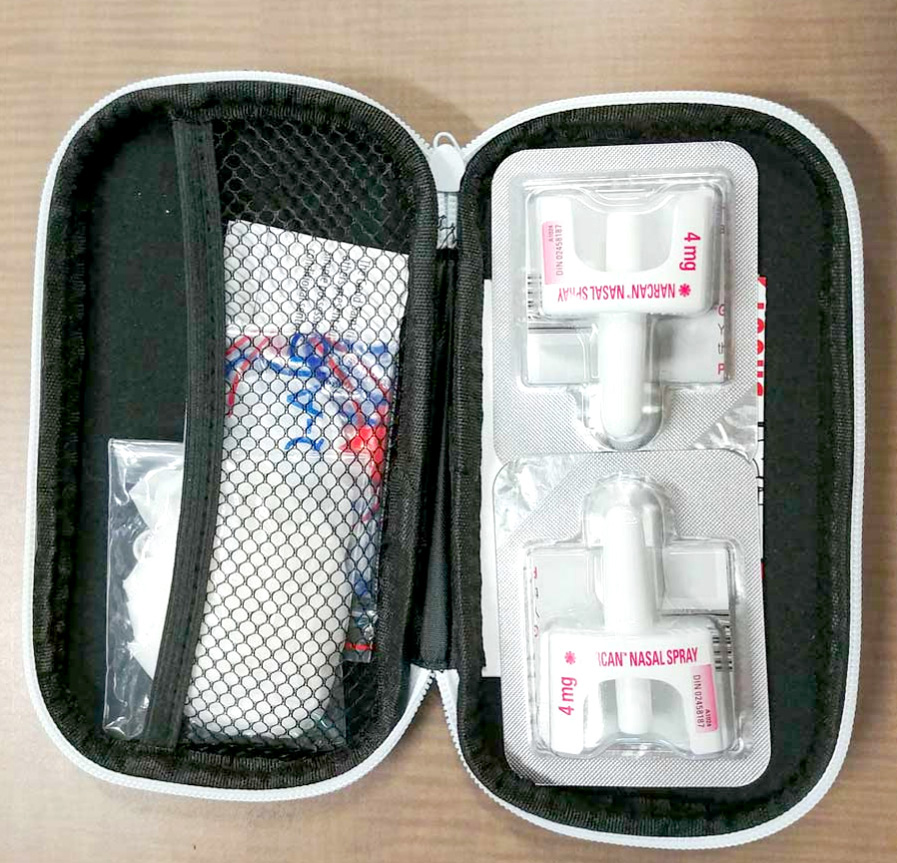GUELPH – With three suspected overdose deaths in Guelph in the past 30 days and seven suspected overdoses in the past five days, Adrienne Crowder is worried what will become of local people addicted to illicit drugs.
Crowder is the manager of the Wellington Guelph Drug Strategy, a coalition of local agencies, institutions and organizations involved with at least one of the four pillars of the drug strategy – prevention, harm reduction, treatment and community safety.
Guelph saw 24 drug overdose deaths in 2020 and there have been 10 deaths this year.
“So far we’re tracking at last year’s numbers,” Crowder said in a phone interview.
“Fatal overdoses have been increasing in Ontario and through the pandemic, they have skyrocketed.
“The unregulated drug supply is an unknown entity, but what we do know is that black-market drugs are getting more toxic over time.”
Red fentanyl has been indicated in the recent cases and is believed to be especially toxic.
Crowder said it’s a vicious cycle – the more black-market drugs are laced with drugs like fentanyl, the more an addicted person craves the extra high.
“Over time, tolerance to the substance increases. So they need more to get the same buzz,” she said.
Fentanyl is relatively easy to bring into the country, she said, and has become the additive of choice.
“There is no quality control, no way to know what’s in it … I’m concerned for the people who use drugs in the unregulated market,” she said.
The pandemic and the isolation and closure of services that accompanied it have put drug users in the dangerous situation of using alone.
Crowder said there isn’t good data for Wellington County but said numbers are higher in Centre Wellington, likely because it’s the largest urban centre in the county.
Crowder said the opioid crisis was identified in 2016 “and it’s only gotten worse. It’s hard to watch. Each life lost probably could have been prevented.”
There are services for people with addiction in the county, however. Stonehenge Therapeutic Community has a mobile clinic that tours the county with a nurse and peer support.
Sanguen Health Centre also has a community health van that travels through Wellington County.
Community Addiction Services is run by the Homewood Health Centre and has locations in Clifford, Drayton, Erin, Fergus, Harriston, Mount Forest, Palmerston, Rockwood and Guelph.
There’s also a phone line for people who are using alone. The National Overdose Response Service is a free and anonymous service that users can call to ensure that someone knows where they are and how they are while they are using. The toll-free, 24/7 number is 1-888-688- 6677.
Crowder said local paramedics and the community health van distribute naloxone kits. Naloxone will temporarily reverse an overdose and buy some time until an ambulance can arrive.
“EMS have been an awesome partner. They get it. They are often the first to see an overdose and the first to manage it. Still, it’s not a perfect system,” she said.
What’s needed to address the opioid crisis is what happened during the COVID-19 crisis, she added.
“Good data, a science advisory table, equipment, treatment and the ability to change policy quickly,” she said. “With all these things, we would see fatalities come down.
“COVID strategies have set a beautiful template for (dealing with) the opioid crisis.”
Crowder said people with addictions don’t need to be shamed or ignored or to be battling stigma when they are seeking help.
“People with addiction don’t have options for good healthcare right now. There’s a long history of blaming the addict. But the pandemic has shown what we collectively can do in a crisis.
“This is a solvable problem.”




